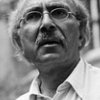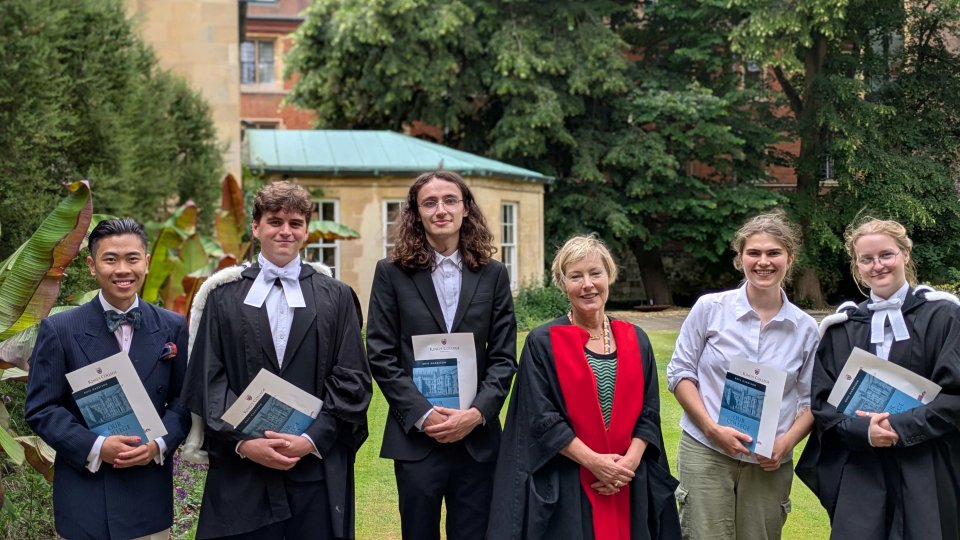This is an exciting and important time to study Asian and Middle Eastern Studies. The "Arab Spring", a series of world-changing revolutions across the Middle East, saw dictator after dictator fall to the will of the people demanding freedom and justice. At the same time, it has left uncertainty and instability in its wake. The only way to understand these incredible historical moments is to know the languages - to be able to talk to people, read their newspapers and listen to their debates. Equally, just think of the growing economic power of China and South Korea, which are major G20 economies today. The intensive grounding in one of the major non-European civilizations that this course offers will open up entire new worlds to you.
With some exceptions, Asian and Middle Eastern Studies (AMES) is a four-year course in which the third year is spent in an Asian or Middle Eastern country. Many students who have developed an interest in the politics, history, economics or art of a particular country also switch to AMES to deepen their knowledge and understanding of that country's language and culture.
The relatively small number of students in AMES means that even lectures are often given to fewer than ten students, and there is much more contact between lecturer and student than is possible in 'bigger' subjects where the audience may be over a hundred. In the first year of the course, teaching concentrates mostly on the basic elements of one or two languages - with students commonly choosing combinations such as Arabic with Persian, Hebrew or a European language, or a single language such as Chinese or Japanese.
In the second year, students do more advanced language work and also have a choice of modules including history, literature, society and politics. In the third year, at least eight months are spent abroad, in a country in which your language or languages are spoken. This is your chance to immerse yourself in the culture, politics, and people of a new place. Some students of Arabic enrol in a university course given in the target language, and many find private tuition or home-stays with families. Students of Japanese and Chinese enrol in universities designated by the Department. Many students also find internships with media outlets, the United Nations, or NGOs.
Asian and Middle Eastern Studies at Cambridge
Undergraduate students and staff talk about studying Asian and Middle Eastern Studies at the University of Cambridge. To find out more about this course, see www.undergraduate.study.cam.ac.uk While every effort has been made to ensure that the information contained in this video is accurate at the time it was uploaded, changes are likely to occur. It is therefore very important that you check the University and College websites for any updates before you apply for the course by visiting…
King's has a strong tradition in Asian and Middle Eastern Studies with former students and Fellows including Tarif Khalidi, an eminent Quranic scholar, and Peter Avery, a renowned British scholar of Persian. George Antonius, author of the seminal text The Arab Awakening, was one of the first undergraduates in the subject at King's, and the influential Chinese poet Xu Zhimo (1897-1931) was a research student at King's in 1921-2.
The College is conveniently situated about seven minutes' walk from the Faculty of Asian and Middle Eastern Studies on the Sidgwick site, where most of the lectures take place.
Fellows at King's in AMES or related subjects:
The number of students admitted for Asian and Middle Eastern Studies at King's varies from year to year, but we usually admit between four and seven undergraduates. We welcome applications from suitably qualified students at all kinds of schools, all over the world.
Subject Requirements
The Part I teaching for Asian and Middle Eastern languages assumes no prior knowledge of the subject or language you have applied for. Although there are no specific subject requirements for these languages, we will obviously be very interested in your aptitude for language learning. Most applicants study a foreign language at school, and should aim to achieve top grades in school-leaving foreign language subjects: it is desirable to be on track to achieve A* at A-level or equivalent in your language at the end of sixth form. If you are planning to combine Arabic, Persian or Hebrew with a language taught in the MML faculty (French, German, Italian, Portuguese, Russian, Spanish), you will need an A-level, IB Higher or equivalent qualification in the European language.
An interest in the world (in politics, history, or literature etc.) is important too, whatever your language choices are. Many applicants have studied social sciences such as Economics or History, but it is also possible to apply and do well with a background in maths and sciences. Strong applicants have often taken a combination of: English, History, and a language (ancient or modern).
Written Work
Candidates are not required to submit any written work as part of their application.
Written Assessments
Candidates for Asian and Middle Eastern Studies at King's are not required to take a written admissions assessment.
If you are applying for a European language alongside your Asian & Middle Eastern language, you will be asked to take the Cambridge-College registered written assessment for MML, which lasts one hour. It consists of a discursive response in your Foreign Language (40 minutes) and a discursive response in English (20 minutes). You do not need to register for this written assessment as it will be organised automatically by the College if you are invited for interview. Students who are not applying for a European language do not take this assessment.
Interviews
We invite most (but not all) candidates who apply for interview. Much more than finding out what you know already, interviewers want to find out about how you learn, how you think on your feet, and how you respond to challenges, so they will ask you plenty of questions to get you thinking and working. Students applying for Asian and Middle Eastern Studies with a European language would have an additional language interview for their European language.
There is no required reading material for AMES applicants, however do have a look at our reading suggestions below. For practice or a taste of the languages available, you may also like to explore phone apps and websites for language learning resources. Memrise has language courses that you can use on their website or on a phone, including material suitable for those starting from scratch (search for the language that interests you e.g. Japanese). Some apps help you to learn vocabulary through flashcards, such as Anki, and look out for resources for specific languages, such as the Al Jazeera resource below for students taking A level Arabic (or equivalent).
Events which may be of interest in the year before you apply (year 12 in the UK) include Oxford and Cambridge Student Conferences, the AMES Faculty Open Day, CU Masterclasses and King's Open Days. Students from backgrounds where there is little tradition of entry to Higher Education might like to think about applying for the Sutton Trust Summer Schools or the CUSU Shadowing Scheme.







